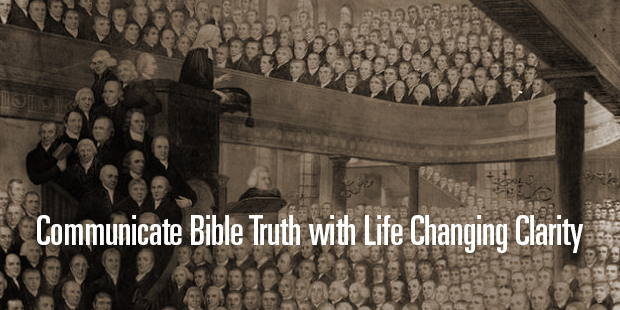
3 Ways Comparing Kills Focus
“Keeping up with the Jones’s.”
Everyone knows the old saying – it’s about seeing your neighbor driving something new, or living somewhere new, or wearing something new, and then feeling a compulsion to match them at worst, or go one better at best. But now, the “Jones’s” are no longer just the people who live down the street or that you see occasionally at the meeting at school. The “Jones’s” are much more widely expanded.
Thanks to social media, our “Jones’s” are anyone, anywhere, at any time. We have at our fingertips the means of comparing our lifestyles, our children, or the lighting of our framed photos with millions, the vast majority of whom we’ve never met. So while we have always had the compulsion inside us to compare ourselves to others, the difference is that we now have the ability to compare ourselves to a far greater extent than we ever have before. Not only that, but comparison is something that just sort of creeps into our consciousness; we don’t necessarily intend to gauge our self-worth or identity based on how we measure up with others – but because we are constantly surrounded with the images of the best lives of others, it’s nearly inevitable that it happens.
But what’s the big deal? I mean, you don’t read any of the laundry lists of sins in the New Testament and find the word “comparison” in them. You might even argue that comparison is a good thing – that in a true capitalistic sense, comparing ourselves to others fosters a greater degree of competition and makes us demand the absolute best out of ourselves.
It is a big deal, though. And we can really only see the bigness of the deal it is when we look at it from the outside in – that is, when we examine some of the destructive effects of comparison to our lives. In order to do that, consider with me the brief account of Jesus’ disciples that is summarized in a single verse:
An argument started among them about who was the greatest of them (Luke 9:46).
This wasn’t the only time when arguments based on comparison were raised up among the disciples. Whether it’s James and John asking for esteemed positions in Jesus’ kingdom or all the disciples squabbling over their own greatness the night of Jesus’ arrest, it was evidently a relatively common topic of conversation. And those are only the comparative thoughts that saw the light of day. Surely there were more with them, just as there are with us, that we treasure and grow in the privacy of our own hearts and minds.
Here, then, are three destructive effects that come from thoughts of comparison, whether they are expressed or unexpressed:
1. Comparison makes us lose sight of the mission.
In the case of the disciples, Jesus was tooling them up to say and do the same things He was saying and doing once He ascended into heaven. They didn’t necessarily know it all the time, but Jesus was not just teaching the disciples – He was training the disciples to be sent out on mission for the sake of the kingdom. And though we might not recognize it either, we are being trained, even as we are to be going.
It’s God’s will for all of us that we are actively engaged in His mission in the world. Our day to day lives are filled with opportunities to extend the kingdom of God both in word and in deed. When we are engaged in the practice of comparison, though, we quickly lose sight of the greater goal that overshadows our personal privilege and placement, just as the disciples did.
2. Comparison makes us lose sight of grace.
It seems that, for most of us, the longer we walk with Jesus, the greater the tendency we have to forget the depth of our own sin. We can easily start to trick ourselves into thinking that sure, we were sinners and all, but let’s be honest – it wasn’t that bad. And that kind of thinking finds a helpful and able ally in comparison.
Our sin certainly doesn’t seem “that bad” if we can find someone who has done worse. So we find that person and compare ourselves to him or her, over and over again, as a means of boosting our own egos. Comparison pushes us further and further away from a conscious realization of how in need of God’s grace we are. And part and parcel with that is the development of a greater and greater self-reliance, which is the enemy of faith itself.
3. Comparison makes us lose sight of the worth of others.
When we live in a state of comparison, it’s impossible to truly love others – that’s because we are too busy using them to actually love them. Instead of selflessly loving our neighbors, they become rungs in our ladder of self, the means by which we climb higher and higher in our own minds. This can’t be so if we are to truly and freely treat others as image-bearers worthy of respect and dignity.
Or another example – when we are constantly comparing ourselves to others, we lose sight of a person’s contribution and necessity for the body of Christ. Instead of valuing what unique set of gifts a person can bring to the body, we are too busy comparing what the “foot” can do as opposed to the “eye.”
In all these cases, comparison just makes us lose sight. We lose sight of the mission; lose sight of grace; and, maybe most ironically, lose sight of other people. In order, then, to not lose sight, we must repurpose our sight – the solution here, as with most things, is not just resolving not to compare ourselves with other people, but instead to fix our eyes on the Author and Perfecter of our faith. And when our gaze is firmly fixed there, there’s not a lot of room for comparison at all.

Tags: Comparision, Leadership, Michael Kelley
























